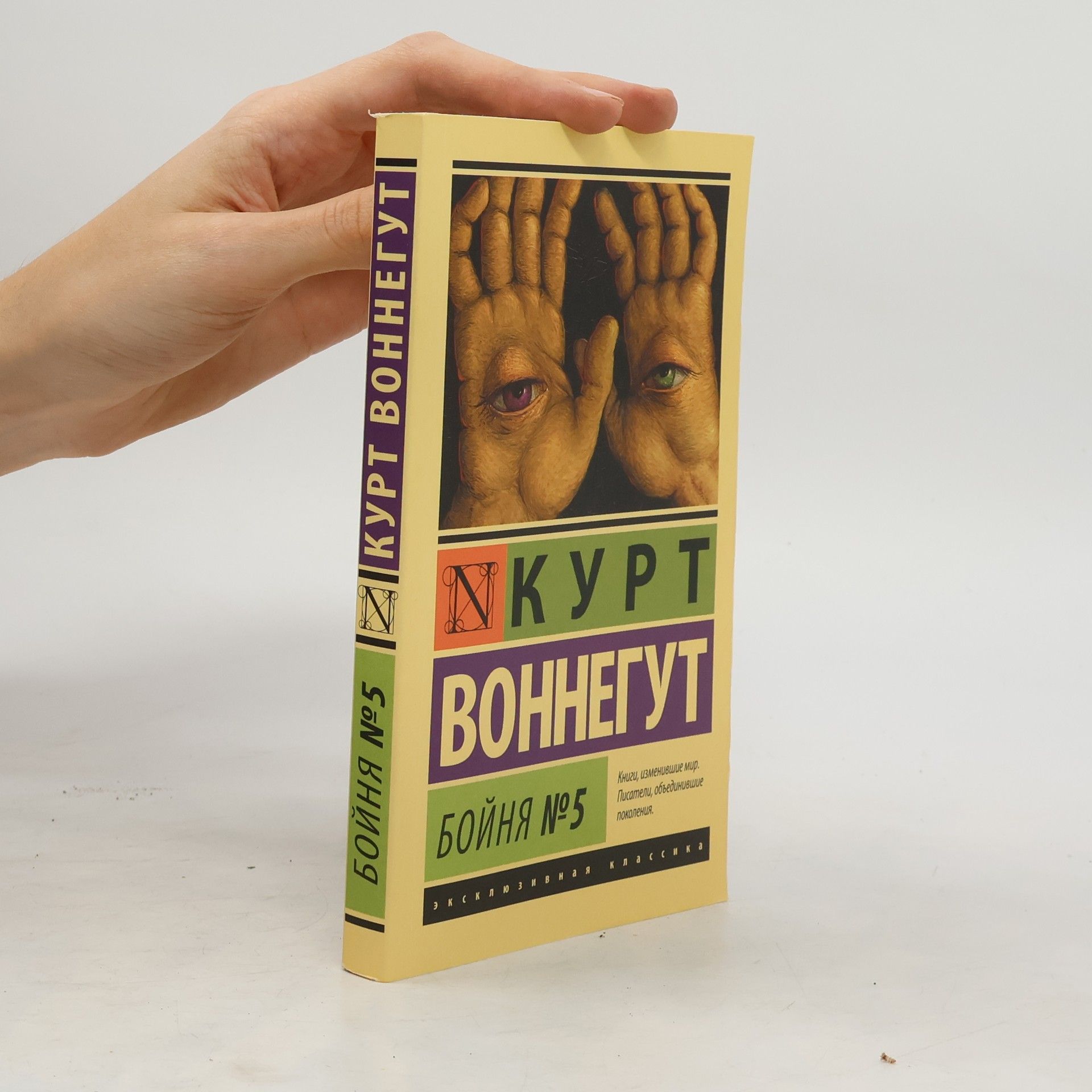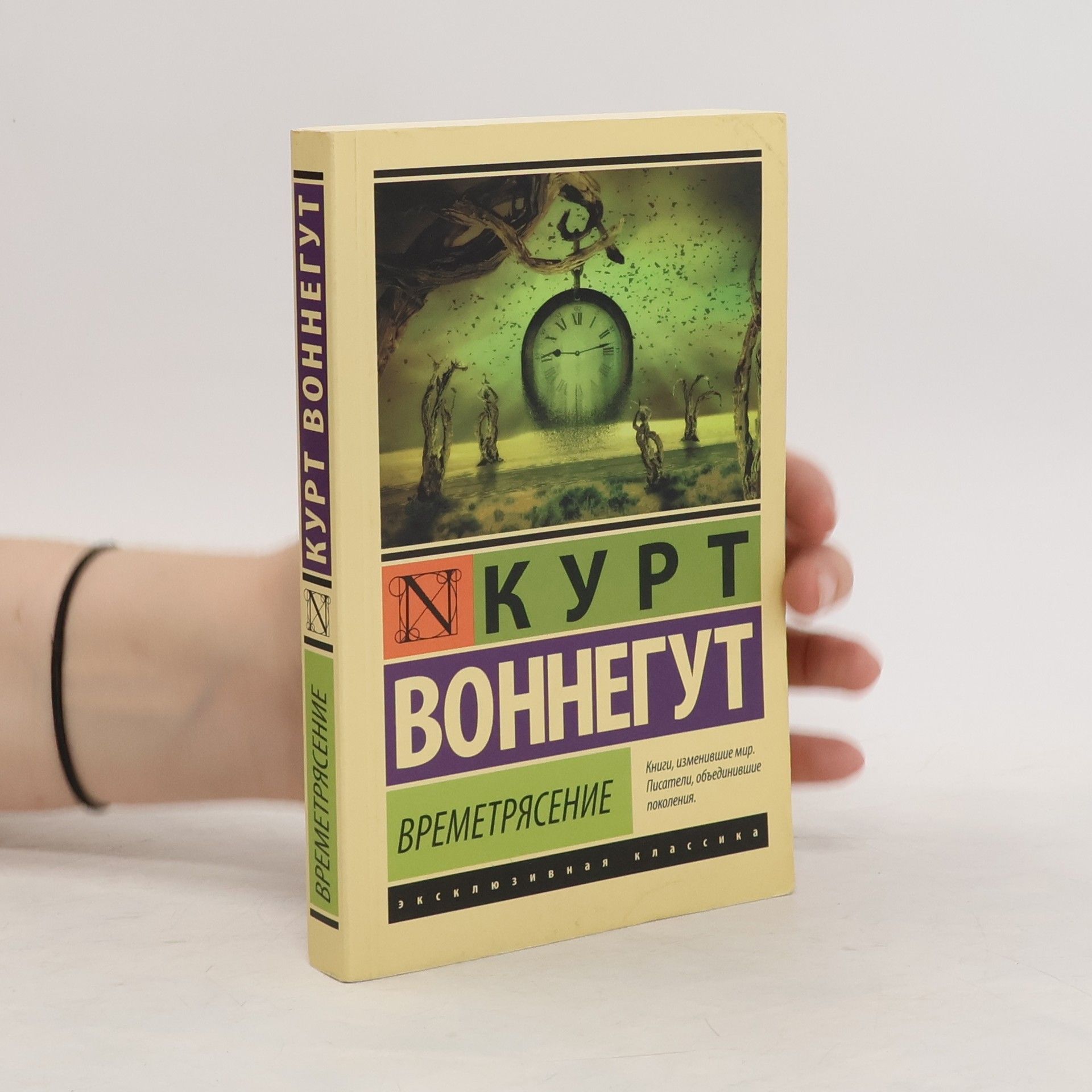Ostra i wciąż aktualna w satyra amerykańskiego stylu życia W Śniadaniu mistrzów Vonnegut w typowy dla siebie sposób obnaża bolączki współczesnego świata – dehumanizację jednostki w społeczeństwie, którym rządzi technologia, spustoszenie środowiska naturalnego i ustawiczne wojny. Dwayne Hoover, bogaty sprzedawca samochodów, nagle dochodzi do wniosku, że wszyscy ludzie są maszynami. Kilgore Trout, nikomu nieznany autor powieści fantastycznonaukowych, sądzi, że życie ma już za sobą. Spotkanie tych dwóch samotnych ludzi na szybko umierającej planecie to doskonały pretekst do przedstawienia – z niepozbawioną humoru ironią – świata, w którym żyjemy. „Cudowna powieść… Vonnegut pokazuje wszystkie bolączki Ameryki…” „The New York Times”
Kurt Vonnegut Book order (chronological)
Kurt Vonnegut was an American novelist, satirist, and graphic artist, celebrated for his works that masterfully blend satire, black comedy, and science fiction. His distinctive writing style, shaped by his experiences as a journalist and his harrowing wartime encounters, is characterized by its unadorned prose and incisive observations on the human condition. A self-proclaimed humanist and socialist, Vonnegut's narratives frequently delve into the absurdities of war, the complexities of societal structures, and the search for meaning, all delivered with his signature blend of profound wit and pathos.







Adventures to Go, Book 6
- 234 pages
- 9 hours of reading
The most unique multi-genre collection keeps delivering surprises. Inside this issue: the captivating true story of a WW1 pilot who survived being shot down, later escaping a German prison camp-written by Lieutenant Pat O'Brien himself. Read the Kurt Vonnegut classic 2BRO2B, get your SciFi fix, take in the underrated author Susan Glaspell, pour over poetry by Elmedina Hota- and even more...
Groteskowy, a zarazem przerażająco wierny obraz świata zbudowanego wokół kultu pieniądza Eliot Rosewater, miłośnik alkoholu, a także prezes bajecznie bogatej Fundacji Rosewatera, nie jest w stanie znieść ciężaru fortuny, którą posiada. Wpada w obłęd i wyrusza w pijacką pielgrzymkę po całym kraju, żeby na końcu zamieszkać w ciasnym biurze w swoim rodowym miasteczku i zacząć, ku niezadowoleniu wpływowego ojca, pomagać jego mieszkańcom w codziennych potrzebach. Tymczasem przebiegły i ambitny prawnik Norman Mushari postanawia pozbawić Eliota majątku i dostać się do upragnionego grona najbogatszych ludzi Ameryki. Finał tego niezwykłego społecznego eksperymentu Eliota Rosewatera każe zastanowić się, kto jest bardziej szalony – milioner, który rezygnuje ze swojej fortuny, czy pełen hipokryzji i chciwości świat, w którym żyjemy.
Pity The Reader
- 432 pages
- 16 hours of reading
Kurt Vonnegut used to like to say, "Practicing an art form is a way to grow your soul." He would screw up his lips into a prune face after he said this because of how important he believed this idea to be. Pity the Reader is the very embodiment of that idea, a book about writing and life and why the two go together. It includes rare photos and reproductions, Vonnegut's own account in his own words of how he became a writer and why it matters, and previously untold stories by and about Vonnegut as teacher and friend. It turns out he was generous to a fault about students' writing, idiosyncratic, a bit tortured and always creative as a teacher, and here in this book that portrait becomes our gateway into getting to know Kurt Vonnegut better than we ever have before as a human being. Vonnegut recounts that his favorite work of art among all those his children produced "so far" is a letter his daughter Nanette wrote to a disgruntled customer, after he had tormented a new waitress at the restaurant where she had just started working, and then he shares the letter with us. Thus he illustrates his first writing rule: "Find a subject you care about." This book is full of such rare, intimately teachable moments, and they add up to something special. Pity the Reader indeed.
Love, Kurt
- 240 pages
- 9 hours of reading
"'If ever I do write anything of length--good or bad--it will be written with you in mind.' Kurt Vonnegut's oldest daughter, Edith, was cleaning out her mother's attic when she stumbled upon a dusty box. Inside were more than two-hundred love letters written by Kurt to Jane, spanning the early years of their relationship: from 1941, when nineteen-year-old Kurt heads off to college, to his deployment to Europe in 1944 and the couple's marriage in 1945. The letters are full of the humor and wit that we have come to associate with Kurt Vonnegut. But they also show more private corners of his mind: Passionate and tender, the letters form an illuminating portrait of a young soldier's life in World War II as he attempts to come to grips with love and mortality. And they expose the origins of Vonnegut the writer, when Jane was the only person who believed in him, and they had no idea how celebrated he would become. A beautiful full-color collection of handwritten letters, notes, sketches, and comics, interspersed with Edith's insights and family memories, Love, Kurt is an intimate record of a young man growing into himself, a fascinating account of a writer finding his voice, and a moving testament to the life-altering experience of falling in love"-- Provided by publisher
If This Isn't Nice, What Is?
- 208 pages
- 8 hours of reading
A collection of 15 graduation speeches and treasured wisdom from the New York Times–bestselling literary icon and author of Slaughterhouse-Five, Cat’s Cradle, and Breakfast of Champions "Like [that of] his literary ancestor Mark Twain, Kurt Vonnegut's crankiness is good-humored and sharp-witted."—A.O. Scott, The New York Times Book Review Master storyteller and satirist Kurt Vonnegut was one of the most in-demand commencement speakers of his time. His words were unfailingly insightful and witty, and they stayed with audience members long after graduation. Chosen and introduced by fellow novelist and friend Dan Wakefield, a selection of speeches and essays in this expanded 3rd edition include: • “What to Do When You Have the Power; In the Meantime, Remember to Skylark!” • “Why Social Justice Does More Than Art to Nourish the American Dream” • “How to Make Money and Find Love!” • “Somebody Should’ve Told Me Not to Join a Fraternity” • “How to Have Something Most Billionaires Don’t” Hilarious, razor-sharp, freewheeling, and at times deeply serious, these reflections are ideal not just for graduates but for anyone undergoing what Vonnegut would call their “long-delayed puberty ceremony”—marking the long and challenging passage to full-time adulthood.
Zsebkönyvek - 49: Az ötös számú vágóhíd
- 232 pages
- 9 hours of reading
Az ötös számú vágóhíd a világirodalom egyik legnagyszerűbb háborúellenes regénye. Főhőse, Billy Pilgrim elszabadul az időben, és zsiráfok meg gyakorlózubbonyos csecsemők, bombák meg ellopott teáskannák társaságában nézi, amint halál és művészet járja szolgálati keringőjét, most, a múltban és mindig, a Földön és a Tralfamador bolygón. Hozzá madarak csicsergik: Nyitni-kék.




